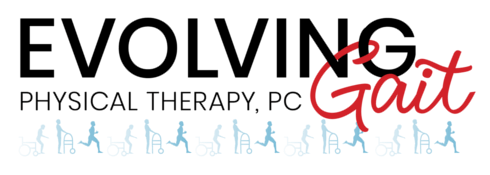Find Relief for Your Arthritic Aches and Pains
Almost a quarter of all American adults have arthritis, according to the Centers for Disease Control and Prevention (CDC). This means that over 54 million people are affected by stiff, achy, swollen, and sore joints on a daily basis.
If you or a loved one is suffering from arthritis in your neck, back, shoulders, wrist, hip, knee, or other joint, we encourage you to contact our clinic right away to schedule a consultation.
The Centers for Disease Control and Prevention (CDC) recognizes physical therapy as one of the most effective “first line” treatment methods for arthritis pain. Continue reading to learn how we can assist you or contact our office today!
5 signs physical therapy could help manage your arthritis pain
A physical therapist can help you control and alleviate your arthritis joint pain without using drugs.
By maximizing your joint health through the following techniques, physical therapy may even help you avoid surgery, such as a total knee replacement or total hip replacement.
Here are the top five things your physical therapist can do for you or your loved one with arthritis:
1. Manual therapy and manualization
Arthritis is defined as chronic inflammation and joint cartilage damage that can lead to painful bone on bone contact. Physical therapy joint mobilizations can alleviate the pain caused by this damage and improve joint alignment and mechanics for longer-lasting relief.
Your physical therapist may also prescribe other manual techniques like soft tissue massage and mobilization, or even instruct you in self-myofascial release exercises to ease muscle tension, break up painful scar tissue, and boost healing circulation.
2. Targeted stretches and exercises
Exercise is a central element to any successful physical therapy program, and especially for someone being treated for arthritis. But how are you supposed to exercise if you’re in constant pain?
While concurrently addressing your pain through other techniques, a physical therapist can teach you exercises and stretches that are a good match to your current ability.
Physical therapy exercises are designed explicitly to address your needs, whether that’s to heal tissues, reduce pain and inflammation, increase strength, improve range of motion, reduce abnormal tension on an affected joint, or all of the above.
Your physical therapist can also show you how to adjust or progress a home exercise program and make real-time modifications to help you feel more successful and safe.
Keep in mind that aerobic exercise like walking, swimming, or cycling is considered one of the most effective non-pharmaceutical approaches to alleviating arthritis pain.
Let your physical therapist teach you how to safely implement more aerobic exercise into your daily life so that you can get the most out of this beneficial activity.
3. Recommendations and fitting of assistive devices
Sometimes, a piece of adaptive equipment or other home modification device is necessary to compensate for functional limitations caused by your arthritis and keep you safer as you move about your day.
But while adaptive devices can be incredibly cost-effective, it’s not useful to have more than what you need, or to not know how to use it properly.
A physical therapist can introduce you to a variety of adaptive devices that will be the most beneficial for your daily life. We can also make sure you know how to use it correctly and adjust any device to ensure it fits you properly.
Devices may include custom orthoses, braces, splints, walkers, crutches, canes, bed canes, long-handled sponges or reachers, benches, and more.
4. Safe and painless treatments
Our physical therapy team uses a range of non-invasive modalities that can enhance the healing effects of exercise and manual therapy techniques.
These may include:
- Electrical stimulation, including TENS
- Cold or hot therapy, including cold packs or paraffin wax
- Cold laser therapy
- Kinesiotaping
- Therapeutic ultrasound
- Dry needling
5. Education
By increasing your awareness about anatomy, pain, body mechanics, posture, ergonomics, and other relevant information, a physical therapist can help you gain a better understanding of your experience and what you can do (or avoid) to improve your comfort and quality of life.
Have you gone through joint replacement surgery?
For some arthritis patients, joint replacement surgery may be on the horizon. When all other conservative treatments have been exhausted, this more invasive solution may be the best “last resort” option for restoring function and alleviating discomfort.
If this is the case for you, you should be aware that physical therapy is a critical component of postoperative recovery and is frequently prescribed by orthopedic surgeons.
A physical therapist can teach you how to follow any limitations or precautions prescribed by your surgeon in addition to guiding you through recovery exercises throughout your healing stages.
We invite you to consider us if you are preparing for or recovering from joint replacement surgery so that you can ensure a positive outcome!
Ready to get started on an arthritis treatment plan?
Don’t let arthritis pain bring you down every day.
Our physical therapy team can provide innovative, research-based, and individualized services to alleviate your pain and assist you in achieving your goals.
Please contact us right away to set up your initial consultation!
Source:
Tags: Health, wellness, naturalpainrelief, healthytips, achesandpains, healthandwellness, PT, physicaltherapy, physicaltherapist


